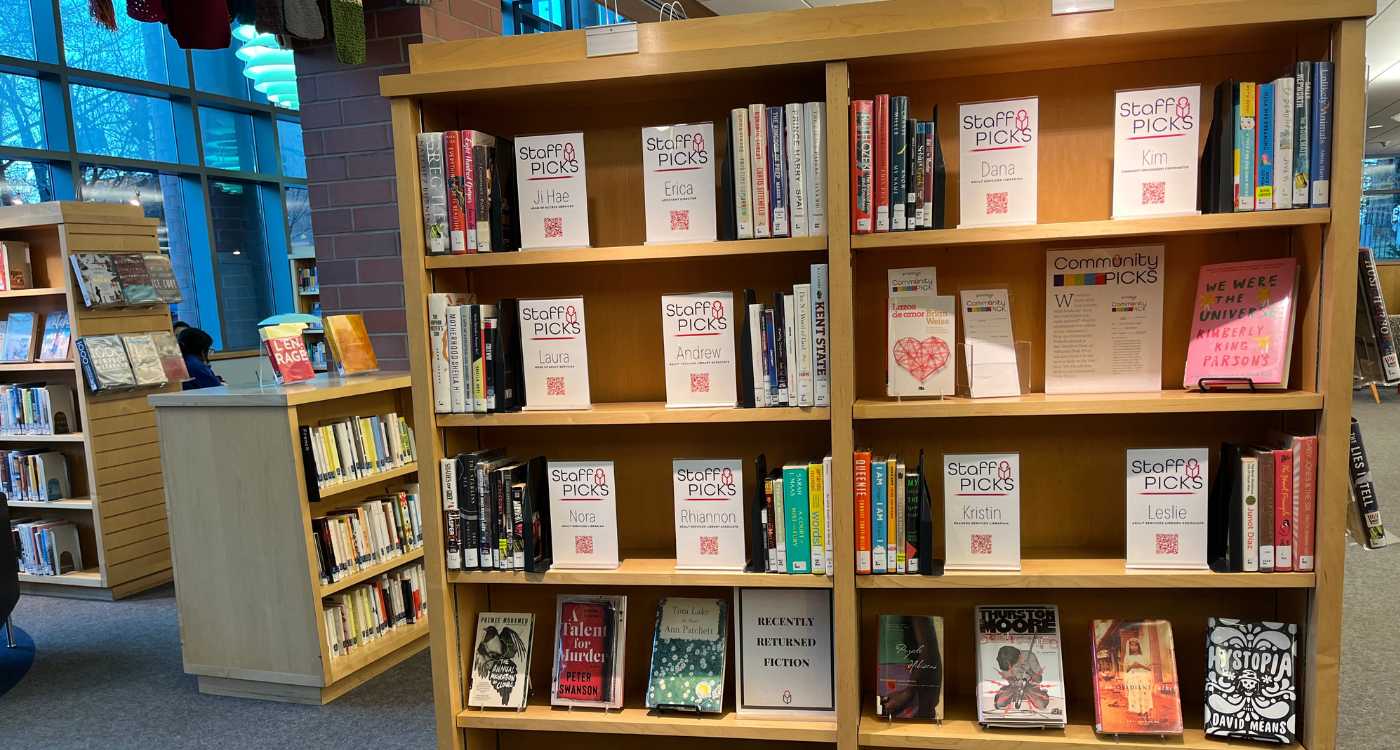
Like any other year, 2024 has had its share of ups and downs. In terms of the library world, there were the reports on book challenges, a surprising focus on “The Elite College Students Who Can’t Read Books,” as originally covered by The Atlantic, the rollout of the best books lists, along with the word(s) of the year. The staff in our adult services department generally look forward to the coveted lists as we prepare our presentation of the top checked-out fiction and nonfiction titles. There’s NPR’s Books We Love, The Guardian (although, being a U.K. publication, some of the titles may not be available stateside), Wall Street Journal (list forthcoming), Literary Hub’s 38 Favorite Books of 2024, Washington Post, Vanity Fair and many more.
We owe an apology to anyone who was outside of our second-floor office door the morning of the announcement of the penultimate year-end list, the New York Times Top 10 Books. The list is comprised of five fiction and five nonfiction titles. While none of us voiced opinions of the nonfiction books, we did voice our extreme displeasure with a spirited exchange over the one book that has, somehow, become a literary darling.
The fiction titles include: “James” by Percival Everett (to no one’s surprise, and well-deserved), “Martyr!” by Kaveh Akbar (although one of us who read it, expressed a feeling of “meh”), “Good Material” by Dolly Alderton (which one of us lost interest in while listening to), “You Dreamed of Empires” by Alvaro Enrigue (which none of us has read, yet), and the ultimate letdown, “All Fours” by Miranda July. NYT describes the author’s second novel, “which follows a married mother and artist who derails a solo cross-country road trip by checking into a motel close to home and starting an affair with a younger rental-car worker” as “the year’s literary conversation piece…” Let’s address the fact that it was a conversation piece because it reads as if the author dreamed up the plot while drinking copious amounts of gin. NYT staff writers left out the part in which the protagonist hires an interior designer to redecorate her hotel room. It’s being called “the first great perimenopause novel,” a description with which the majority of people who we know in this category completely disagree.
This leads us to this year’s word (or phrase) of the year, announced by Oxford University Press: brain rot. Brain rot is nothing new; Henry David Thoreau first used the phrase in “Walden.” But, perhaps, it has resonated more in 2024 than it did in Thoreau’s time. The definition: (n.) Supposed deterioration of a person’s mental or intellectual state, especially viewed as a result of overconsumption of material (now particularly online content) considered to be trivial or unchallenging. Also: something characterized as likely to lead to such deterioration.
Just as there are multiple lists of top books, so is the case with words. In contrast, Cambridge Dictionary named their selection, “manifest” as their word of the year. A positive position may be just what one needs. Let us all work to manifest the 2025 we want to see.
Despite our personal opinions, we do believe in S.R. Ranganathan’s third law of library science: “every book its reader.” With that in mind, we are here to help you find your next great read. Fill out a BookMatch to get a personalized list of book suggestions. Looking for a gift idea? Try GiftMatch. We’ll send you a list of five titles that your recipient will love. While we prepare our list of top checked-out books of the year, stop by our desks the next time you visit and let us know your thoughts about what you’ve read in 2024.
